How A.I. Is Remodeling the Fantasy Home
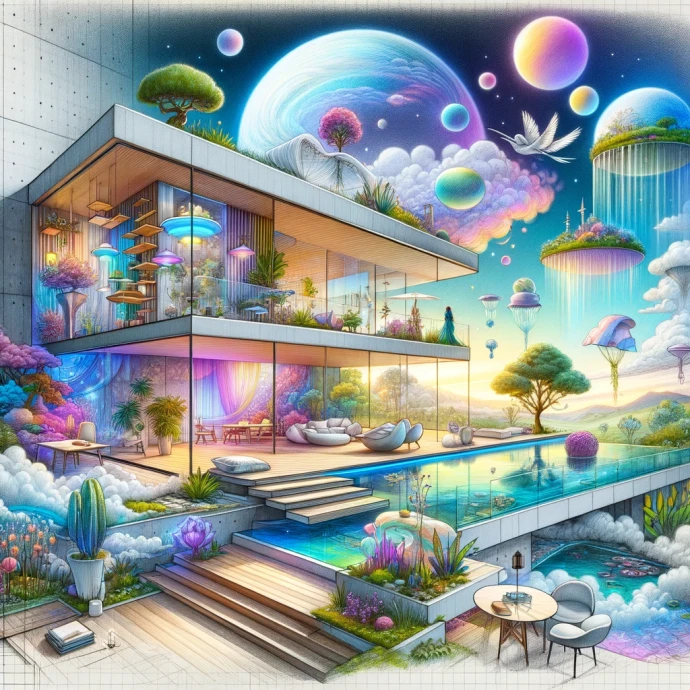
In the peaceful hours of the night, we ended up lost in the computerized pages of Instagram, our eyes moving over pictures of homes that murmured commitments of flawlessness. It was there, in the midst of the perpetual look over, that we coincidentally found @tinyhouseperfect — a signal for my fretful craving for a space to call my own. Possessing a home appeared to be a far off dream, yet here was a dream of something little, feasible, and completely charming. Could a minimalistic house, etched by the hands of computerized reasoning, hold the way into our desires?
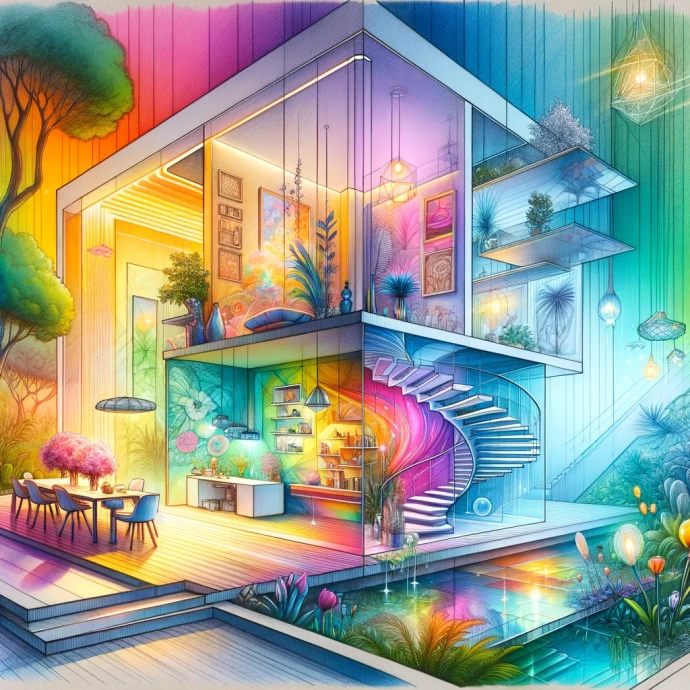
As we dug further, the appeal of artificial intelligence created homes unfurled before me. From the cozy niches of an elfin cabin to the sensational lines of a gothic seaside A-outline, each picture illustrated an ideal life, distant from the requirements of the real world. These weren't simply houses; they were passages to an existence where dream and want met, made by the shrewd bit of simulated intelligence. The acknowledgement hit me — these homes didn't exist past the pixels on my screen.
However, the fantasy they exemplified was strong, a demonstration of the groundbreaking capability of computerized reasoning in molding our most profound cravings.
The Computerized Delusion: Exploring the Deception of AI-Created Spaces
The excursion through @tinyhouseperfect uncovered a significant truth about our computerized age: the line between the real world and dream has never been more obscured. The homes that caught our creative mind, with their apparently vast insides and fastidiously organized subtleties, were only inventions of AI driven dream. This disclosure was an obvious indication of the force of calculations to impact our longings, to give us dreams of a day-to-day existence just outside our ability to understand.
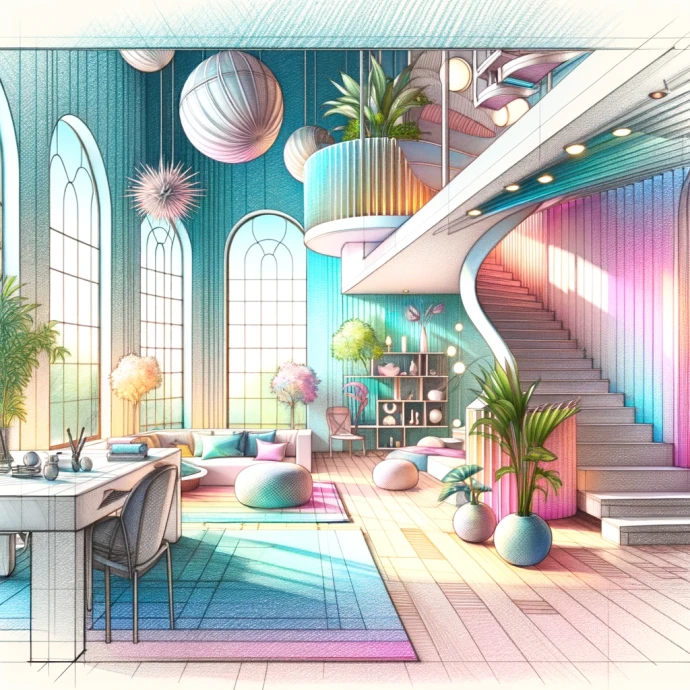
The peculiarity of AI produced homes addresses a more extensive pattern in our computerized lives. Stages like Pinterest and TikTok flood with pictures of impeccable living spaces, every one more charming than the last, all brought into the world from the profundities of man-made intelligence creative mind.
This computerized scene of unending chance mirrors a significant change by the way we imagine home and achievement. The conventional dream of homeownership, when a foundation of American desire, has been reevaluated by the real factors of current life — increasing financing costs, a shortage of reasonable lodging, and the consistently present shadow of corporate property managers.
From Dreams to Computerized: The Advancement of Home Goal
The interest in homes is certainly not another peculiarity. Authentic points of reference, from the extravagant pages of Engineering Overview to the voyeuristic delights of «Ways of life of the Rich and Popular,» have consistently welcomed us to dream. However, as we thought about the homes that simulated intelligence had summoned, it struck us how personalization calculations had refined this deep-rooted interest into something more private, more custom-fitted to our singular preferences.
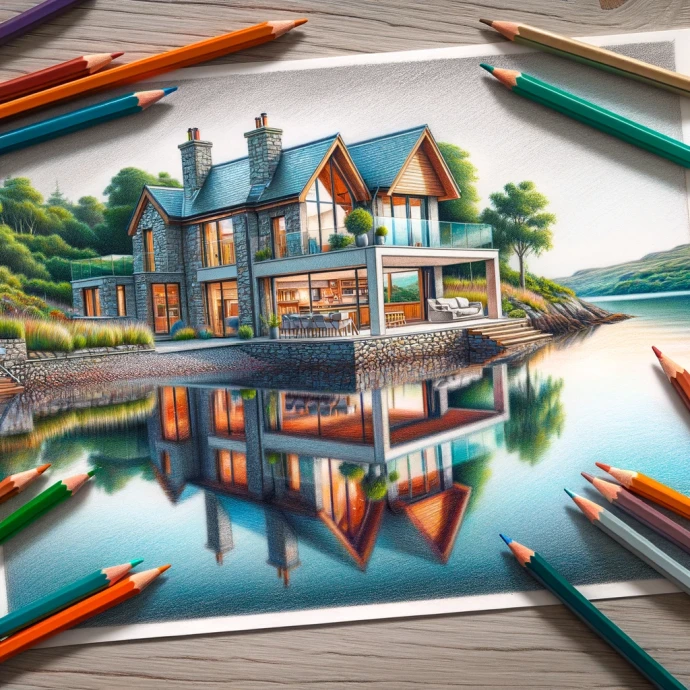
AI produced loch house, with its stunning waterfront sees and a kitchen that appeared to repeat our own tasteful inclinations, was an ideal model. Maybe the calculation knew us, knew precisely exact thing would pull at our heartstrings. This customized way to deal with dream highlights a huge development in our relationship with yearning. Never again are we only onlookers of extravagance; from the perspective of artificial intelligence, we become the focal point of our own optimistic accounts, designers of our own fantasy homes.
The Truth Behind the Dream: Defying the Deceptions of AI Made Homes
The excursion into the universe of artificial intelligence created homes isn't without its discords. The acknowledgment that these spaces exist exclusively in the computerized ether carries with it a feeling of frustration. However, there is likewise an odd solace in the illusion, all things considered, Dissimilar to the unmistakable jealousy that genuine homes could incite, these artificial intelligence created spaces permit us to dream without the weight of examination. They exist in a domain where the tensions of housing markets and the constraints of actual space hold no influence.
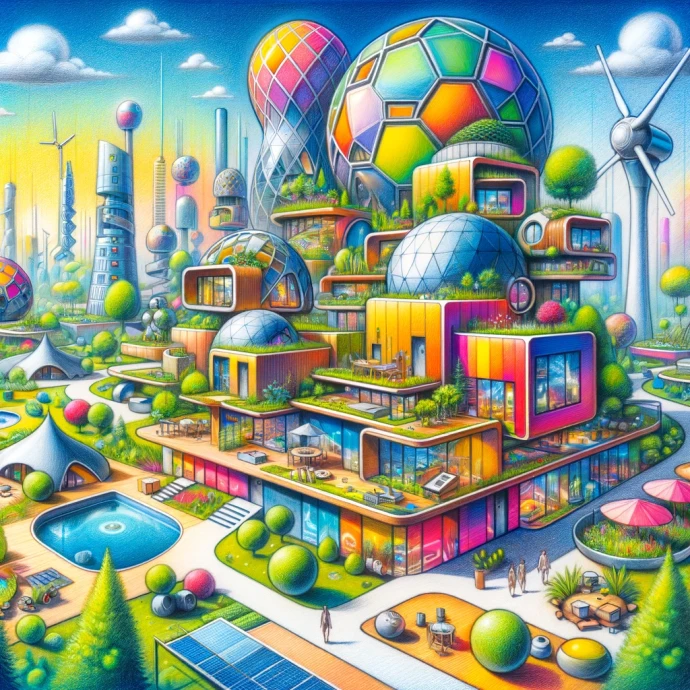
This advanced dreamscaping additionally prompts us to reevaluate the idea of desire itself. The actual demonstration of imagining ourselves in these nonexistent homes is an imaginative activity, a type of play that rises above the material limitations of our world. It's an update that, even in this present reality where the fantasy of homeownership feels progressively too far, our ability for creative mind stays undiminished.
Past the Veneer: The Effect of AI on Our Idea of Home
As we rose up out of the dark hole of @tinyhouseperfect, we were left with a significant feeling of reflection. The charm of these artificial intelligence created homes lay in their tasteful allure, yet in what they addressed: a material for our most profound desires, a mirror mirroring our craving for a space that is extraordinarily our own. However, they likewise act as a wake up call, an indication of the force of innovation to shape our longings, to sell us dreams of flawlessness that, while spellbinding, stay barely too far.
Eventually, the excursion through the dream homes of man-made intelligence is something beyond a dalliance with computerized illusions. It's a reflection on the developing idea of yearning, on the manners by which innovation can both move and dark our journey for a spot to call home. As we explore this new outskirts, the test will be to track down balance — to embrace the potential outcomes that artificial intelligence offers for motivation and imagination, while residual grounded in the real factors of our actual world.

Become a part of digital history



Comments about How A.I. Is Remodeling the Fantasy Home